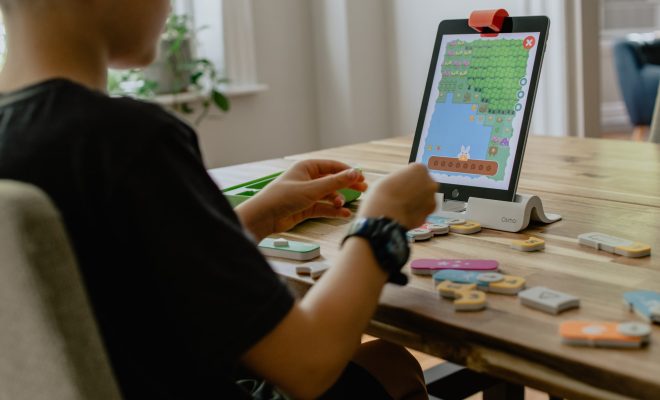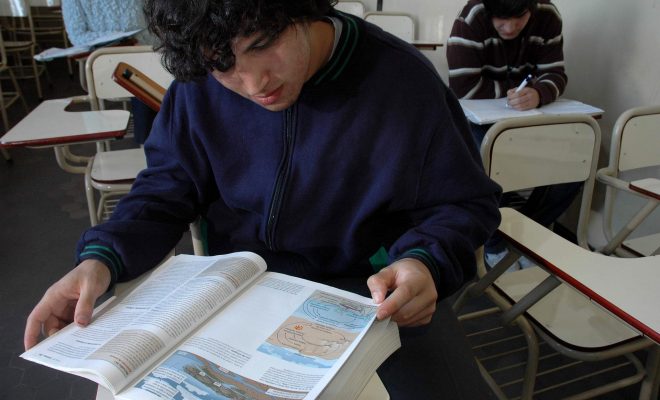What To Teach At Each Stage Of Reading Development

Learning to read is a process that consists of multiple stages. The earliest stage is when children are just starting school and learning basic sounds. As they grow older, children pass from one stage to the next until they can start to read long sentences independently.
However, it is vital for good reading development that children are taught the right kind of reading skills at each stage. To do this, teachers need to know the correct type of reading exercises appropriate for each stage.
Key Reading Components
Teachers should try and design a reading program for their class that focuses on five key elements. These elements are basic sound recognition, phonics, fluency, word recognition, and comprehension.
Basic sound recognition includes teaching kids the sounds of each letter of the alphabet. This step is essential and must be one of the first things kids learn because they won’t be able to read until they know the alphabet.
Developing fluency is also vital so that children can read with the proper tone and facial expressions. Lastly, all teachers should make sure that kids learn to recognize sounds and words and understand their meanings so that their reading comprehension skills develop simultaneously.
What Are the Stages?
At the elementary school level, the stages of reading development can be broken down into three main stages. These stages are as follows:
- Kindergarten – Year One
- Year Two – Year Three
- Year Four – Year Six
In the first stage, children must be taught using sound games and exercises to learn to recognize the different phonemes. They must also earn their alphabet from A-Z. Aside from that, they can be taught essential 3-letter words.
In the second stage, children can start reading more significant words and expanding their word bank. They can also begin to learn fluency skills, like intonation and pacing, as well as expression.
Students can focus on short paragraphs with special attention given to developing comprehension skills from the fourth grade and up. A focus on vocabulary building is also a must.
Tools For Teachers
Aside from planning what to teach at each stage of reading development, teachers also need to pick out useful strategies and exercises that help children learn to read better.
A good strategy is to use online tools like reading apps that are designed specifically with elementary school children in mind. These add a bit of fun to the classroom activities so that children are motivated to participate in class.
Concluding Thoughts
Knowing what to teach and how to teach it at each stage of the reading process is crucial in developing good readers.






